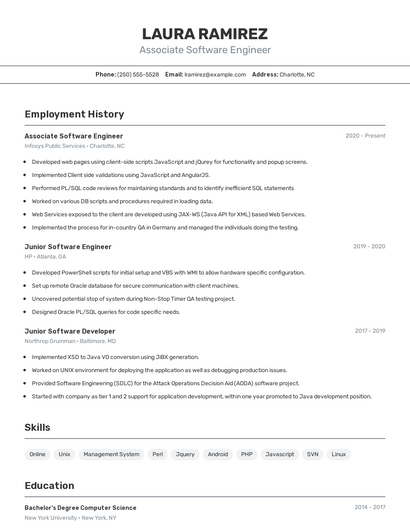
If you are interested in military consulting, there are many different opportunities available to you. As a consultant, you could work for companies that help military personnel. You can gain valuable experience in many different areas. For their consulting services, many companies employ ex-military personnel.
Job description
A military consultant can be any person working for the government and/or an organization that supports the military. These consultants offer information and referrals for military personnel. They also help them manage competing demands. They work with clients to develop and implement plans that meet their goals. This job description details the many duties that a Military Consultant may be required to perform.
Technical advisor is often used to describe a military consultant. They typically work in Los Angeles. Some military advisors have also been veterans of television and film. These advisors are often sought out for larger projects. These advisors will offer a unique view of the military.
Requirements
Military consultants assist in the construction of various projects for the United States army. To meet project goals, they coordinate with architects, engineers, and construction workers. They determine the time and budget limitations and design plans that will meet military specifications. They may also provide instructions and regulations for contractors. They can also supervise construction projects.

The skills and experience required to be a military consultant are essential. While some of these jobs require military experience, you don't have to be a veteran in order to apply.
Qualified applicants
Qualified applicants are eligible to apply for the recent graduate program. In this program, applicants receive training, mentorship, and career development. To be eligible for this program, applicants must possess a current college degree or certificate. However, veterans can apply up to six years after their graduation.
Military consultant jobs require that qualified applicants are able to interact with others in order to be considered. This requires them to be meticulous and organized and capable of managing many projects at once.
SOAR Consulting recruiters
Soar Consulting is a military recruitment company that specializes in transition jobs. They match up enlisted troops, enlisted leader, and junior officers with talent-seeking organizations. They also work with recruiters to place the right candidates. The company is currently accepting applications to these positions.
This is a great opportunity for students to apply for these positions through their school's recruit center. These recruiters will be able to provide additional information on the application process and how you can get a job at SOAR. Many larger companies also hold informational sessions on campus. Some firms assign a certain number of slots to particular schools.

Career path
Many military consultants are highly skilled in many areas. These professionals are often referred to as "blue collar" or "nononsense", but they can actually be highly skilled in a variety of areas. These skills can also be utilized to help clients with their business planning or sales. Being a member of the military can help people make informed decisions that will lead to success in business.
A general manager is a common job for military personnel. This job is responsible for managing, planning, and directing work teams. Managers must be strong leaders with a background in business management. Usually, this job requires a bachelor's degree in business or management.
FAQ
Are you a qualified consultant?
Learning a lot about a subject and then applying it to your life is the best way to be an expert.
If you are interested in becoming a great advisor, then start learning now!
Employers may be reluctant to hire people with a degree, but not the relevant experience. If you can show that your education is comparable to the job applicants, you may still be eligible for employment.
Employers will always seek out candidates who have real-world experience.
What happens when the consultant finishes his job?
After the consultant has completed the work, they will submit a final document detailing the results. This report includes project timelines, deliverables, and any other pertinent information.
Next, you will review the report and determine if the consultant has met your expectations. If it does not, you can ask for changes or terminate the contract.
Is consulting a real job?
Consulting is not only an entry-level profession for those looking to make fast money, but it's also an excellent way to acquire valuable skills that you can apply throughout your career.
Consulting can offer many career opportunities, such as project management and business development. Projects could include small start-ups or large international corporations.
Consulting provides you with the opportunity to develop and hone your skills, as well as gain experience within a range of industries. This could include learning to manage teams and write proposals, manage finances, analyze data, create presentations and conduct market research.
How do I choose the right consultant?
Three main factors should be considered:
-
Experience - How skilled is the consultant? Is she a beginner? Intermediate? Advanced? Expert? Does her resume demonstrate that she has the required skills and knowledge
-
Education – What did this person learn at school? Did he/she go on to further education after graduation? Can we see evidence of that learning in the way s/he writes?
-
Personality - Do we like this person? Would we prefer him/her working for us?
-
The answers to these questions help determine if the consultant is right for our needs. If there are no clear answers, then it might be worth an initial interview to learn more about the candidate.
What types of jobs are available as a consultant?
Consultant work requires a deep understanding of business strategy, operations, and other aspects. You need to be able to comprehend how businesses function and how they fit in with society.
A career as a consultant requires you have great communication skills and a strong ability to think critically.
Consultants need to be flexible as they might be assigned different tasks at different times. They should be able change direction quickly, if required.
They should be willing to travel extensively on behalf of their clients. This type of work can take them all over the world.
They need to be able and able to manage pressure and stress. Sometimes, consultants may be required to meet strict deadlines.
Consultants might be required to work long hours. You may not get overtime pay.
Statistics
- 67% of consultants start their consulting businesses after quitting their jobs, while 33% start while they're still at their jobs. (consultingsuccess.com)
- So, if you help your clients increase their sales by 33%, then use a word like “revolution” instead of “increase.” (consultingsuccess.com)
- Over 62% of consultants were dissatisfied with their former jobs before starting their consulting business. (consultingsuccess.com)
- According to statistics from the ONS, the UK has around 300,000 consultants, of which around 63,000 professionals work as management consultants. (consultancy.uk)
- My 10 years of experience and 6-step program have helped over 20 clients boost their sales by an average of 33% in 6 months. (consultingsuccess.com)
External Links
How To
How do I start a consultancy company?
Start a Consulting Company to make some extra money from home. You don't need any previous business experience or investment capital. It is possible to create a website to launch your consulting business. Once you have a website built, you can start using social media platforms such Instagram and Pinterest to spread the word about you services.
These tools will allow you to create a marketing plan which includes:
-
Writing content (blogs).
-
Establishing relationships (contacts).
-
Generating leads through lead generation forms
-
Selling products online
Once you've created your marketing strategy, the next step is to find clients who are willing to pay you for your services. Some prefer to meet up at networking events or go to meetings, while others prefer to use online platforms like Craigslist, Kijiji, and others. It's up to you to make the decision.
After you have found new clients, it's important to discuss terms and payment options. This could include hourly or flat fees as well as retainer agreements and flat fee contracts. It's important to know what you expect before accepting a client so you can communicate clearly throughout the process.
The most common type of contract for a consultancy service is an hourly agreement. In this case, you agree to provide certain services at a fixed rate each month or week. You may be eligible to negotiate a discount, depending on the service that you offer. Make sure you understand what you are signing when you accept a contract.
Next, create invoices for your clients and send them. Invoicing can be a complicated task until you actually attempt it. There are many ways that you can invoice your clients depending on what your preferences are. For example, some people prefer to have their invoices emailed directly to their clients, while others print hard copies and mail them. Whatever method you choose, make sure it works for you!
After you've finished creating invoices, you'll want to collect payments. PayPal is preferred by most because it is easy-to-use and offers multiple payment options. There are many other payment options, such as Square Cash, Square Cash and Google Wallet.
Once you're ready for collecting payments you'll need to set up bank account. Having separate checking and savings accounts allows you to track income and expenses separately. You can also set up automatic bank transfers to pay bills.
When you start a consultancy business, it may seem overwhelming, but once you learn how to do it correctly, it becomes second nature. Our blog post contains more information on how to start a consulting business.
It's a great way for extra income without having to worry about hiring employees. Remote consultants don't need to be tied down by office politics or work long hours. Since you are not tied down by regular working hours, you have more flexibility than a traditional employee.